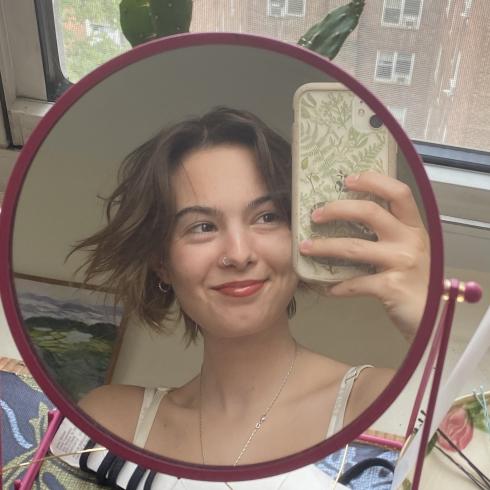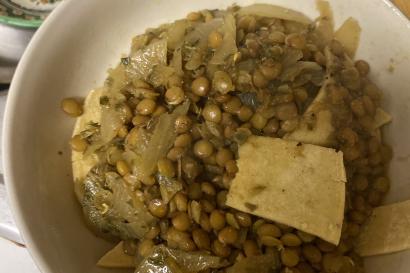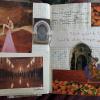While I knew to expect some culture shocks, there were some that caught me by surprise! I wanted to share what those have been, as well as tips on adjusting to them.
- Washcloths: I was surprised that I was not provided with a washcloth by my host family, and when I’ve looked for them in the supermarkets I’ve been unable to find anything of the kind. If you’re particular about washcloths, pack your own. If not, what you can easily buy is a rough-textured glove used to exfoliate the skin at the hammam, or public bath, which I’d highly recommend visiting during your stay in Morocco.
- Water: This was largely an issue during my 10-day orientation in Meknes, since the weather was so hot, but my host family there also didn’t provide us with drinking water. Americans drink a lot more water than people of other nationalities. The tap water might disagree with you, so I’d recommend bringing a reusable bottle, and then you can buy large (5-liter) jugs of water at any corner store to keep at home and refill from. My host family in Rabat also provides us with filtered water, so it may depend on your situation.
- Walking: I find that walking in Rabat’s crowded spaces follows different rules than it does in the United States. For one thing, many Moroccans (at least, Rabatis) walk more slowly than I do. For another, men rarely if ever move out of the way to accommodate women, even in groups, when walking. Also, I’ve noticed that Moroccans walk on the right side of the road less consistently than Americans, which sends me bumping into people walking the opposite direction from me.
- Trash cans: There are very few trash cans in public spaces anywhere in Morocco. Expect to need to carry trash with you until you find one, and don’t be afraid to duck into a café and ask to use theirs.
- Cafés: This was an unfortunate culture shock, but many cafés are very male-dominated and can feel uncomfortable to enter as a woman, especially alone. In Rabat, I recommend Café La Scène and Café Bellona in the ville nouvelle, and Librairie Café in the Qasbah (as well as one whose name I can’t find right by the main entrance to the Qasbah with a sign outside it for desert-brewed coffee) for a more welcoming environment.
- Elevators: It’s taboo to be in the elevator with a married couple if you’re alone (especially for women, unfortunately). This is one of many customs that is very foreign to us, but is essential to Moroccans. Wait for the next one or take the stairs.
- Jay-walking: While jay-walking isn’t out of the ordinary in Morocco, something I’ve noticed (as a New Yorker and therefore experienced jay-walker) is that cars slow down much later than they do in the United States, even if they are planning to stop for you, which can be scary and confusing. This can also lead to some uncomfortable experiences as a passenger in a taxi. Also, I’ve noticed that a lot of petit taxi drivers tell me not to buckle my seatbelt in the front seat, which can make the sudden stops extra scary. However, I haven’t noticed any car crashes or other accidents, so I think it’s more of a culture shock than a real safety hazard.
- Invoking God: The English translations of common phrases in Arabic like “inshallah” (God willing) or “wallahi” (I swear to God) invoke a sense of seriousness that they don’t necessarily carry in the Moroccan context. “Inshallah” is used much more casually than I expected, and also in reference to anything in the future, even if it is fairly certain (for instance, my host mom often says “inshallah” when I ask her to do my laundry, which was a little jarring the first time).

Mariama Regaignon
I'm from NYC and attend Bryn Mawr College near Philly! I'm passionate about film, social justice, backpacking, fashion, jewelry-making, reading, and plant-based cooking. When I'm at home I love exploring the city or hanging out with my two cats.







